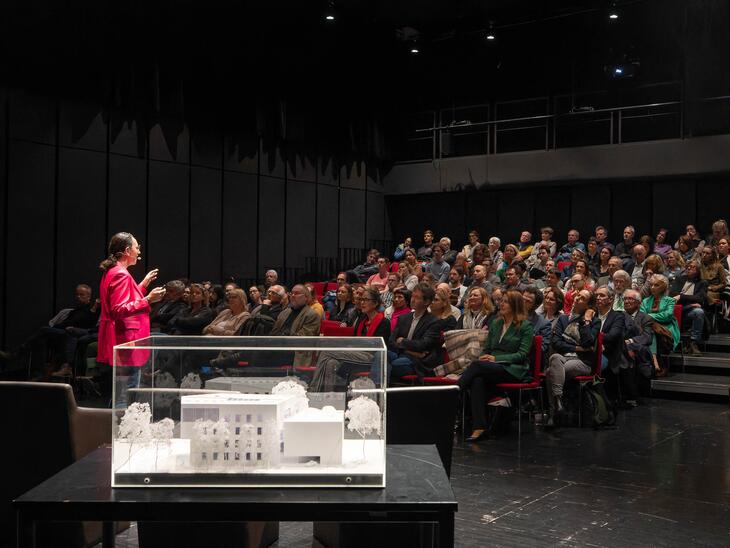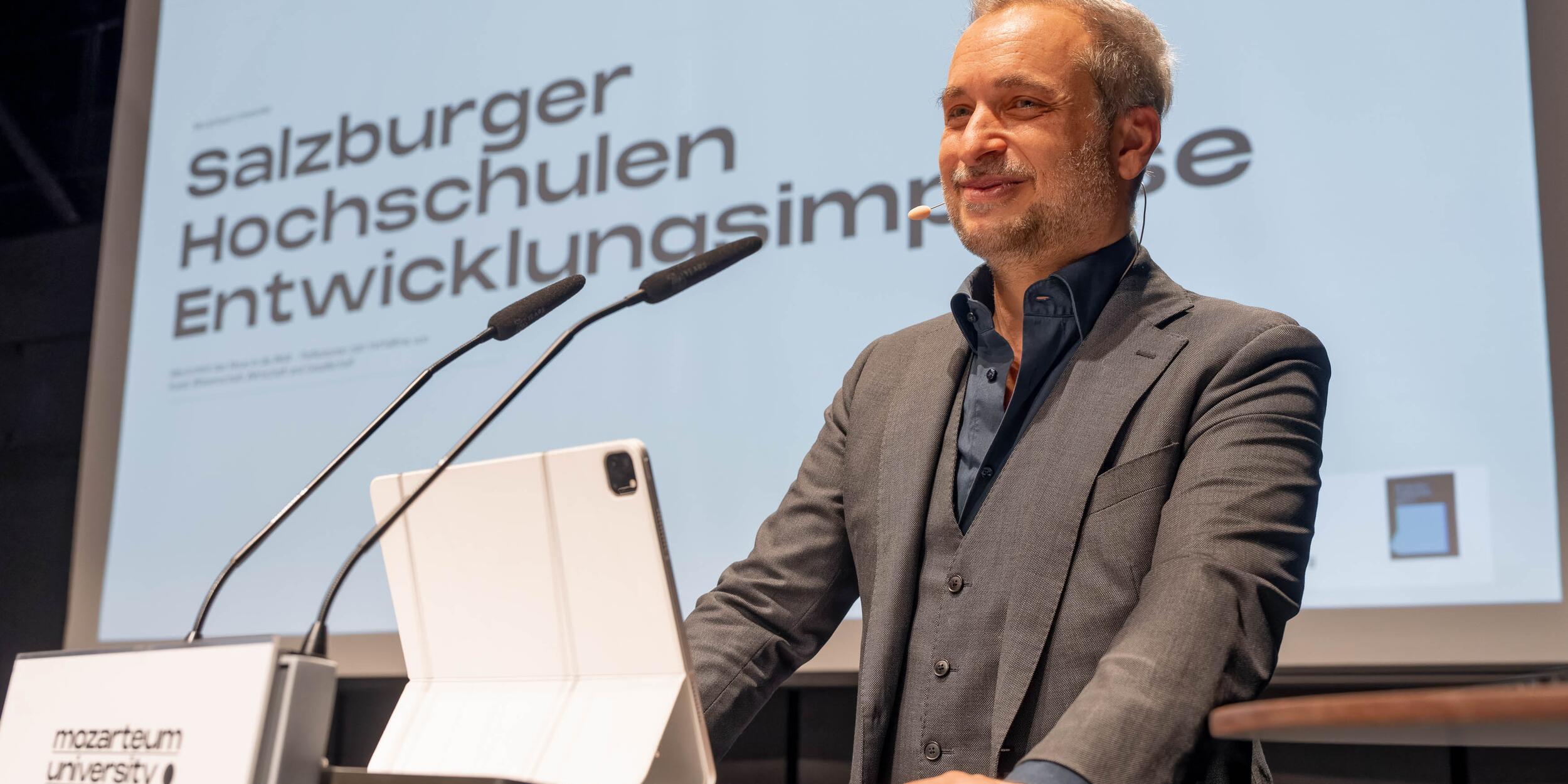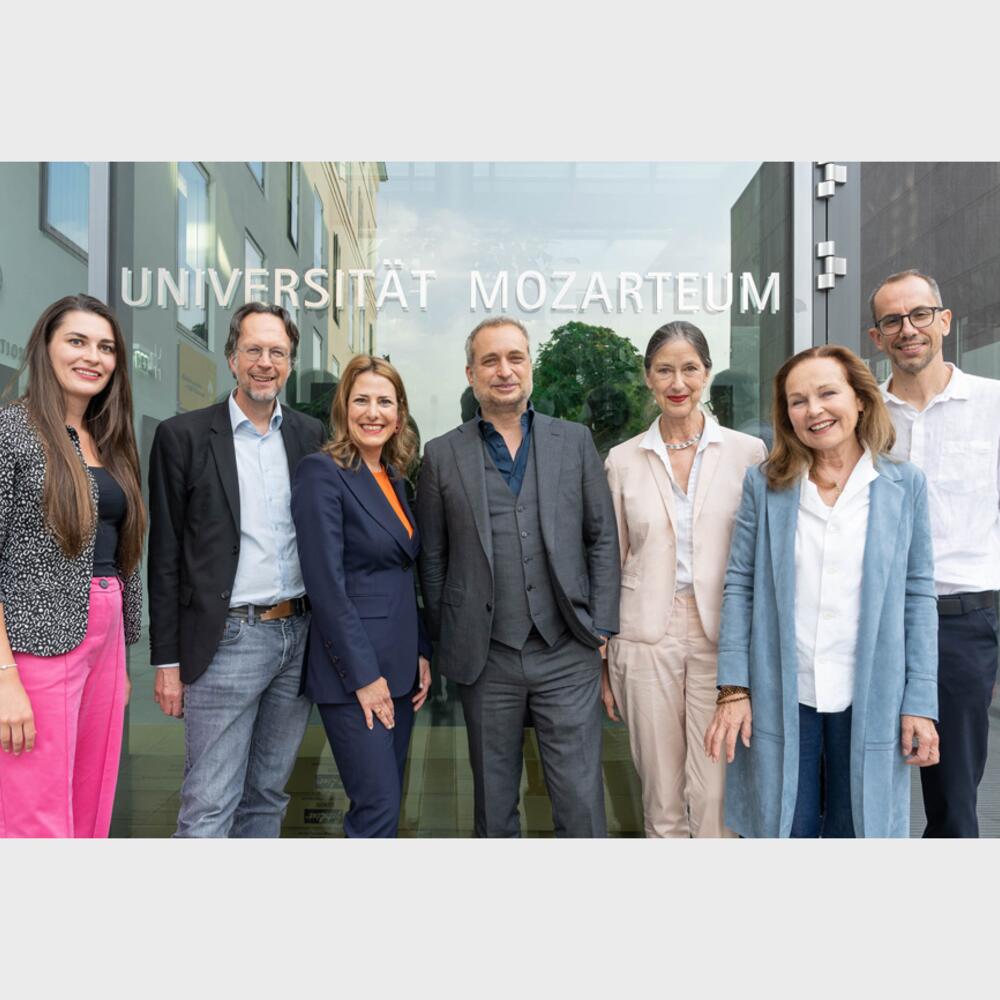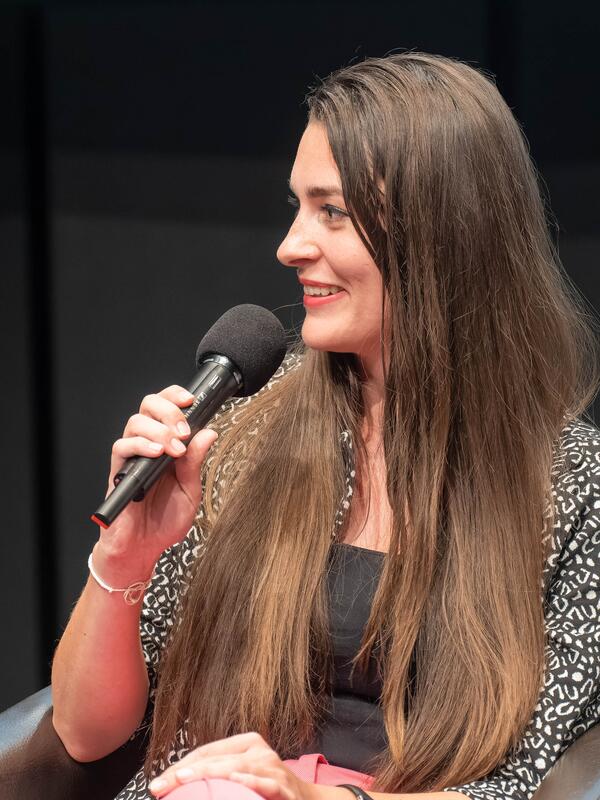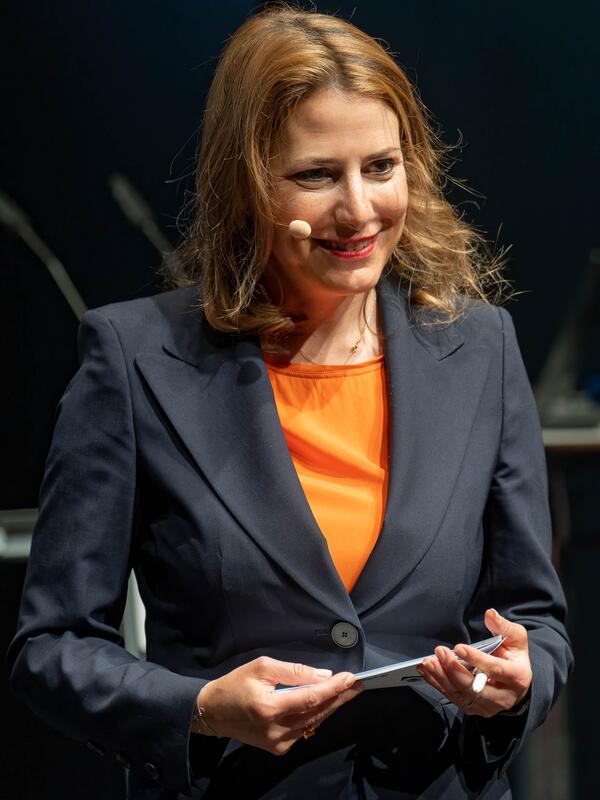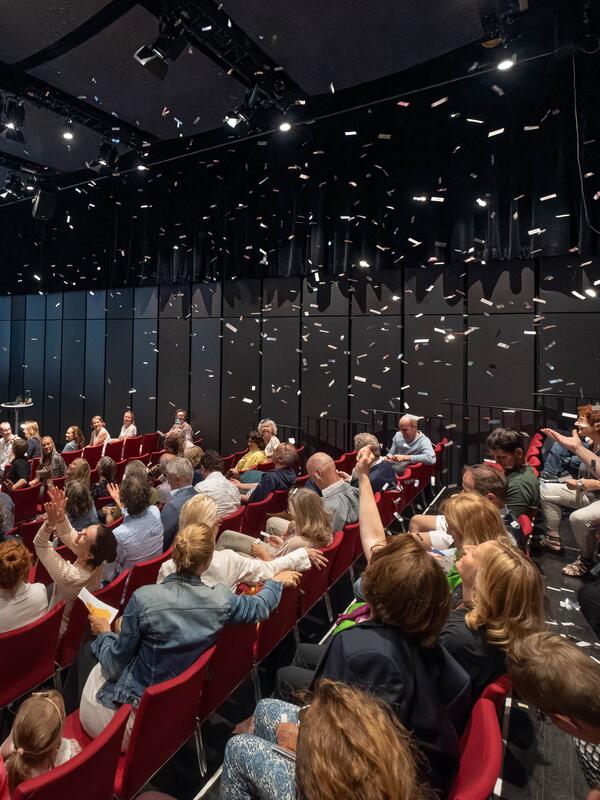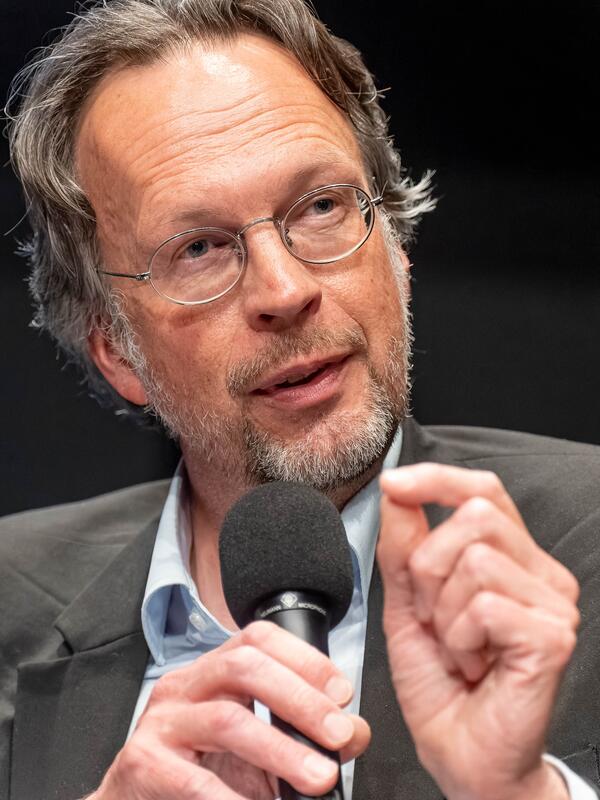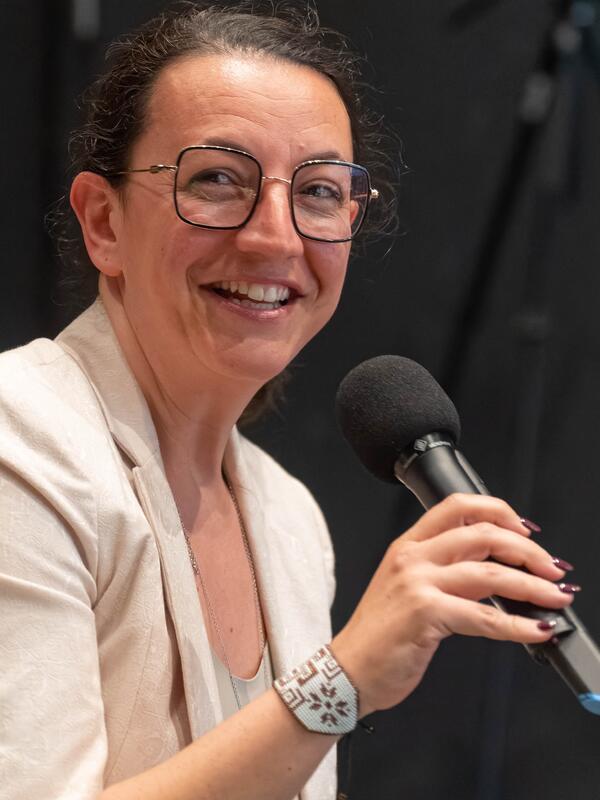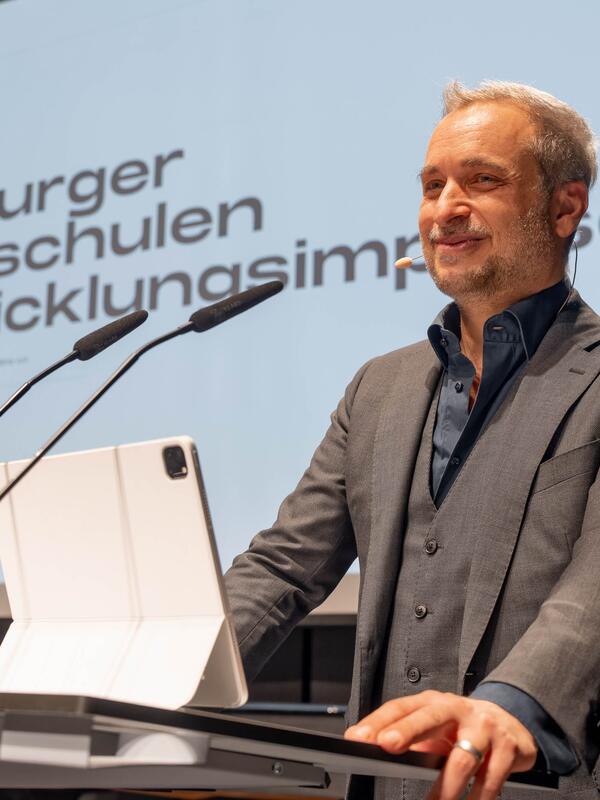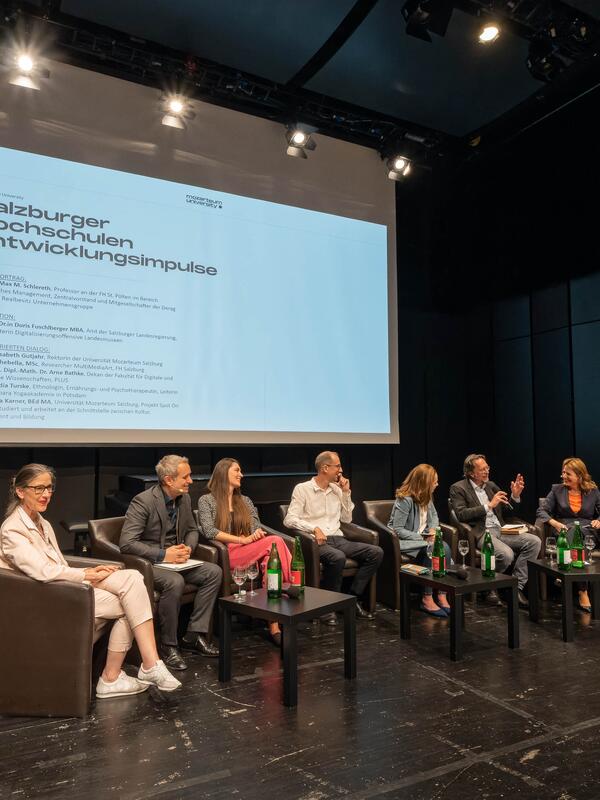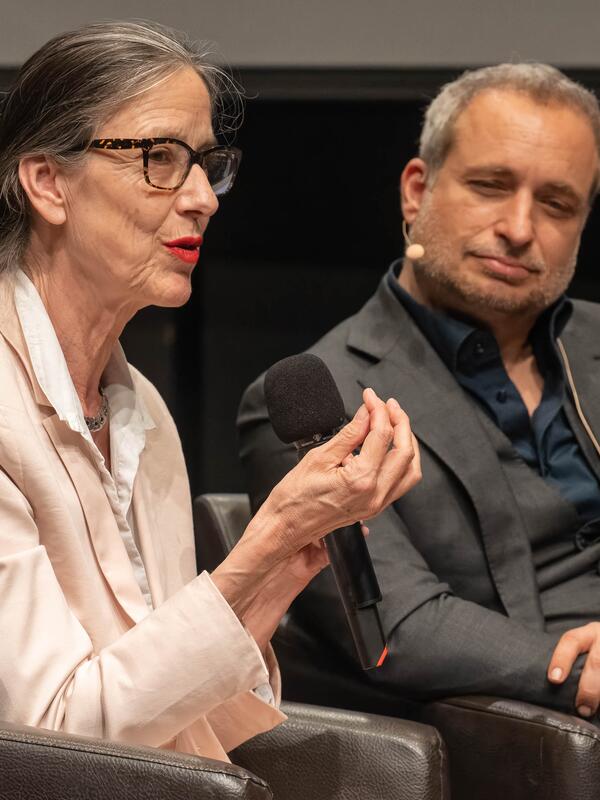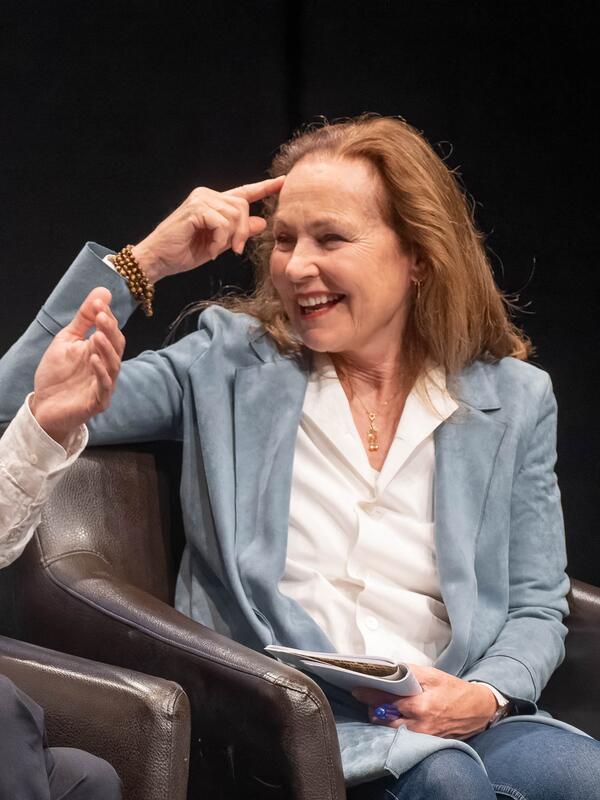Rector Elisabeth Gutjahr called for active participation in her opening words; it rained "inspiration" on the audience in the hall in the form of paper scraps on which terms and associations could be read, linked with the request to interrupt the lecturer Max Schlereth at any time and to use one of these terms to set his lecture on new tracks. Max Schlereth, who has been working on the question of the emergence of the new for years, approached the topic from an economic as well as a philosophical perspective. Which social systems are the ideal breeding grounds for innovations and innovative solutions, which prerequisites are needed? Often it is the search for solutions to problems, the urge to satisfy the needs of society that drives people to develop something new.
Targeted questions from the moderator to the panelists allowed the audience to experience a variety of inspiring moments and thoughts from very different perspectives. All speakers agreed on creativity; creative people are able to combine divergent thoughts, technologies or disciplines to create something unique and to find innovative solutions by recognising connections and transferring concepts to new areas. In addition, it takes courage to use unconventional methods and perspectives as well as openness to leave the "safe harbour" of one's own discipline. Despite the importance of interdisciplinary questions and approaches, it is essential to concentrate on one's own discipline; only with genuine expertise from one's own discipline can innovation succeed, says Arne Bathke.
Claudia Turske took us in a completely different direction, for whom meditation, close listening, silence and also silence are the basis for creativity and innovation. Allowing a loss of control, stepping out of the safe harbours of one's own supposed knowledge, in her opinion, is the only way to create something new. The youngest panelist, Magdalena Karner, pointed to the influence of the zeitgeist. Generations Y and Z are open to change and innovation, but not at any price; sustainability and a considerate approach to the planet dominate the actions and thinking of their generation.
Marius Schebella sees a widespread scepticism in society to allow something new, comparing it provocatively to thuja hedges that obscure the view of finding something new; managing something new and earning from it is desired and corresponds to the innovation and start-up mindset. Language itself, a sensitive use of terms, reflection on the use and translation of terms in other areas and disciplines, allowing for playfulness, awakening Homo Ludens, so to speak, can generate new things or stimulate innovations, said Rector Gutjahr in her closing remarks. The discussion with all its animating words and opinions was comparable to many budding light bulbs - some shone more intensely but briefly, some longer but less brightly, some in flashes.
The recipe for the new
Leave enough room for the irrational, add a pinch of provocation, a creator's game, loss of control, interdisciplinarity in well-founded depth, importantly do not over-institutionalise art, think in analogies and at the same time break through the patterns, some mathematics and statistics, mix everything together in silence possibly with meditation, if possible a delicate layer of dream and fill the whole thing into new linguistic forms.
